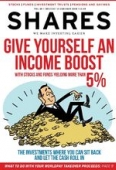Archived article
Please note that tax, investment, pension and ISA rules can change and the information and any views contained in this article may now be inaccurate.
How to invest ethically

Ethical and sustainable investing used to be thought of as a charitable endeavour that places principles before profits, but there is growing evidence to suggest it can lead to better long-term returns.
There are now around 200 funds in the UK that claim to invest sustainably, putting much more choice at investors’ fingertips.
You need to dig deep to ensure the fund meets your criteria because managers have yet to reach an agreement on what ethical and sustainable really means.
CAN ETHICAL INVESTMENTS OUTPERFORM?
The biggest argument against investing ethically is that if excluded sectors like oil, mining, tobacco, alcohol and armaments perform well, your portfolio could lag the overall market.
Some ethical funds have underperformed their benchmarks over certain time periods. But Simon Howard, chief executive of the UK Sustainable Investment and Finance Association, says investors need to take a long-term view.
‘The investment case is that over time returns from unsustainable activities will tend to be very poor,’ he explains. ‘So fossil fuel stocks will see declines as tax and regulation bites, whilst some agricultural practices are clearly unsustainable and that will damage values in various food supply chains.’
Tanya Pein, an independent financial adviser at In2 Planning, a specialist in responsible investment, warns that investors run the risk of losses or lower performance if they don’t take environmental, social and governance (ESG) factors into account.
When Volkswagen was found to have programmed its diesel engines to activate certain emissions controls only during laboratory emissions testing, its share price went into steep decline. There were many funds that suffered an immediate loss as a result of holding Volkswagen.
‘Another example of where there can be substantial risks in not taking an ESG-focused approach is climate change,’ says Pein.
‘The valuation and dividend risks in the traditional oil and gas sector continue to increase sharply as governments and businesses commit to reducing oil consumption and carbon emissions, in line with the
legally binding commitments made in the Paris Agreement
two years ago.
‘This leaves the FTSE 100, with its predominance of oil and gas companies, a high-risk option – on a financial returns basis alone, why take that risk?’
IS ETHICAL INVESTING LESS DIVERSE?
Another argument against ethical or ESG investing is that it reduces the diversity of a portfolio.
This argument has become slightly less convincing in recent years as numerous ESG funds covering all of the main asset classes have been introduced.
Matthew Coppin, manager, financial advice at Castlefield Advisory Partners, says it is sometimes possible to seek exposure to excluded ‘unethical’ sectors in a forward-looking way. For example, you could have mining exposure through a business that mines landfills for sought-after materials like plastics, computer components or precious metals.
‘Obviously the more restrictive [the client is] on what they want to exclude and include, the more difficult it becomes to find viable assets in the investment universe,’ he adds.
HOW DO I INVEST?
Before searching for a fund it’s helpful to think about your definition of ethical and what types of companies you want to include and exclude.
There is a big difference between funds that have an ESG focus and those that are ethical.
Ryan Hughes, head of fund selection at AJ Bell, says many investment houses include an element of ESG in their process, but very few let this be a determining factor in their investment decisions.
‘Ethical investing takes this to a new level, with the majority actively screening out stocks that do not meet set criteria. Even then, some funds employ a much stricter screening approach than others, taking a so-called “dark green” approach,’ he explains.
Some funds use terms like ethical, socially responsible or stewardship in their name despite investing in companies that most people would regard as unethical.
Castlefield Advisory Partners says these ‘spinners’ include Vanguard SRI European Stock Fund (IE00B76VTL96), which invests in British American Tobacco (BATS) and Royal Dutch Shell (RDSB); and Aberdeen Ethical World Equity (GB0006833932), whose third-biggest holding is EOG Resources, a firm accused of illegally burying waste and open-air burning of natural gas.
Analysis
There is some evidence to suggest ethical and sustainable investments can outperform, but because the industry is relatively new it isn’t conclusive.
An analysis by Morgan Stanley’s Institute for Sustainable Investing found that over a period of seven years, sustainable investments usually met and often exceeded the performance of traditional investments.
Four FTSE Russell indices, which select companies involved in energy efficiency, water technology and other green applications, have all outperformed their benchmark, the FTSE Global All Cap Index, since the financial crisis.
PICKING THE ETHICAL WINNERS
AJ Bell’s Ryan Hughes suggests Kames Ethical Cautious Managed (GB00B1N9DX45) is a good starting point for investors. The fund is a mix of equities and bonds and it screens out stocks that don’t meet its strict ethical criteria, such as gambling, tobacco and alcohol companies.
Other well-regarded ethical funds include Liontrust UK Ethical (GB00B8HCSD36) and Rathbone Ethical Bond (GB0030957137).
If you want a fund that specifically invests in the environment, Hughes recommends Impax Environmental Markets (IEM). The trust has exposure to themes such as energy efficiency, water technology and pollution control.
An alternative is FP WHEB Sustainability (GB00B8HPRW47), which focuses on environmental and social challenges such as sustainable transport, cleaner energy, health and education.
The passive ethical investment space is much smaller, but one to consider is iShares Global Water UCITS ETF (IH20). The exchange-traded fund tracks an index comprising 50 of the largest global companies engaged in water-related businesses, such as American Water Works and Severn Trent (SVT). (EP)
Important information:
These articles are provided by Shares magazine which is published by AJ Bell Media, a part of AJ Bell. Shares is not written by AJ Bell.
Shares is provided for your general information and use and is not a personal recommendation to invest. It is not intended to be relied upon by you in making or not making any investment decisions. The investments referred to in these articles will not be suitable for all investors. If in doubt please seek appropriate independent financial advice.
Investors acting on the information in these articles do so at their own risk and AJ Bell Media and its staff do not accept liability for losses suffered by investors as a result of their investment decisions.
Issue contents
Big News
- Is Mothercare a takeover target after share price slump?
- Dialight banking on new leadership
- Coal hits one-year high
- Eco Atlantic gets Exxon discovery boost
- The week in a minute
- Christmas boost for grocers
- Which UK-listed stocks are affected by US tax reform?
- Where to invest your Worldpay takeover proceeds

 magazine
magazine








